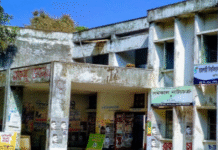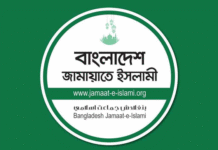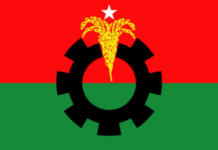Convener of the Parliamentary Caucus on Indigenous Affairs Rashed Khan Menon on Sunday observed that the involvement of civil and military officials and political strongmen in the process of grabbing lands of ethnic minorities in the Chittagong Hill Tracts (CHT) is the main obstacle for resolving the CHT crisis.
“The vested interest of the armed force is active there over the last three decades. The land disputes are linked with the interests of the political strongmen, and civil and military officials in that region,” he said at a seminar, marking the International Day of the World’s Indigenous People to be observed on August 9.
The seminar, titled ‘International Indigenous Peoples Day and Land Rights of the Indigenous Population’, was organised by 21 civil society organisations, including Association for Land Reform and Development (ALRD), Bangladesh Adivasi Forum, Transparency International Bangladesh (TIB) and Nijera Kori, at the CIRDAP auditorium.
Menon noted that anomalies in ensuring the land rights of the ethnic minorities in the CHT as well as in the plains across the country has been the main factor behind all kinds of oppression and discrimination of the ethnic minorities.
“No progress on peace in the CHT can be made without ensuring the right to land of the ethnic minorities,” he said.
Menon, also president of the Workers Party, said the possibility of resolving disputes about illegal leases and possession of lands by ‘settlers’ also faded out as the Cabinet has approved the CHT Land Dispute Resolution Commission (Amendment) Bill 2013 without properly incorporating the amendment proposals made by the ethnic minority leaders.
In his keynote presentation, Bangladesh Economic Association president Prof Abul Barakat noted that only 10 of their 13-point amendment proposal have been incorporated into the bill, of which some were included inappropriately.
He said a kind of state-sponsored demographic engineering has been going on in the CHT. From 1977 to 2007, about 22 percent of the ethnic minority households have been evicted by ‘Bangalee settlers’ in the CHT, he added.
Abul Barakat said at least 38 percent of the ethnic minority households had to change their permanent address at least once during the same period.
Their traditional social ownership of land came down from 83 percent in 1978 to 41 percent in 2009.
On the other hand, 62 percent of the ‘Bangalees’ living in the CHT has moved there as part of the ‘demographic and political engineering’ between 1977 and 2007, he added.
Barakat also noted that the CHT Accord of 1997 has also failed to resolve the crisis.
“In the past, it has been observed in many countries that failure to resolve such historic crisis even after 10-20 years of an accord can lead to a return to the pre-accord situation,” he cautioned.
Bangladesh Adivasi Forum general secretary Sanjeeb Drong stressed that there will be no real solution to the CHT crisis unless the land rights and the self-determination of the ethnic minorities are ensured.
He also called for amending the constitution of the land to recognise the ethnic minorities as ‘indigenous’ population.
Sanjeeb also recommended forming a separate Land Commission for the plain- land ethnic minorities to recognise their traditional land ownership arrangement.
Chaired by Nijera Kori coordinator Khushi Kabir, the seminar was also addressed by Chakma Circle Chief Raja Debashish Roy and noted columnist Syed Abul Maksud.
Source: UNBConnect










